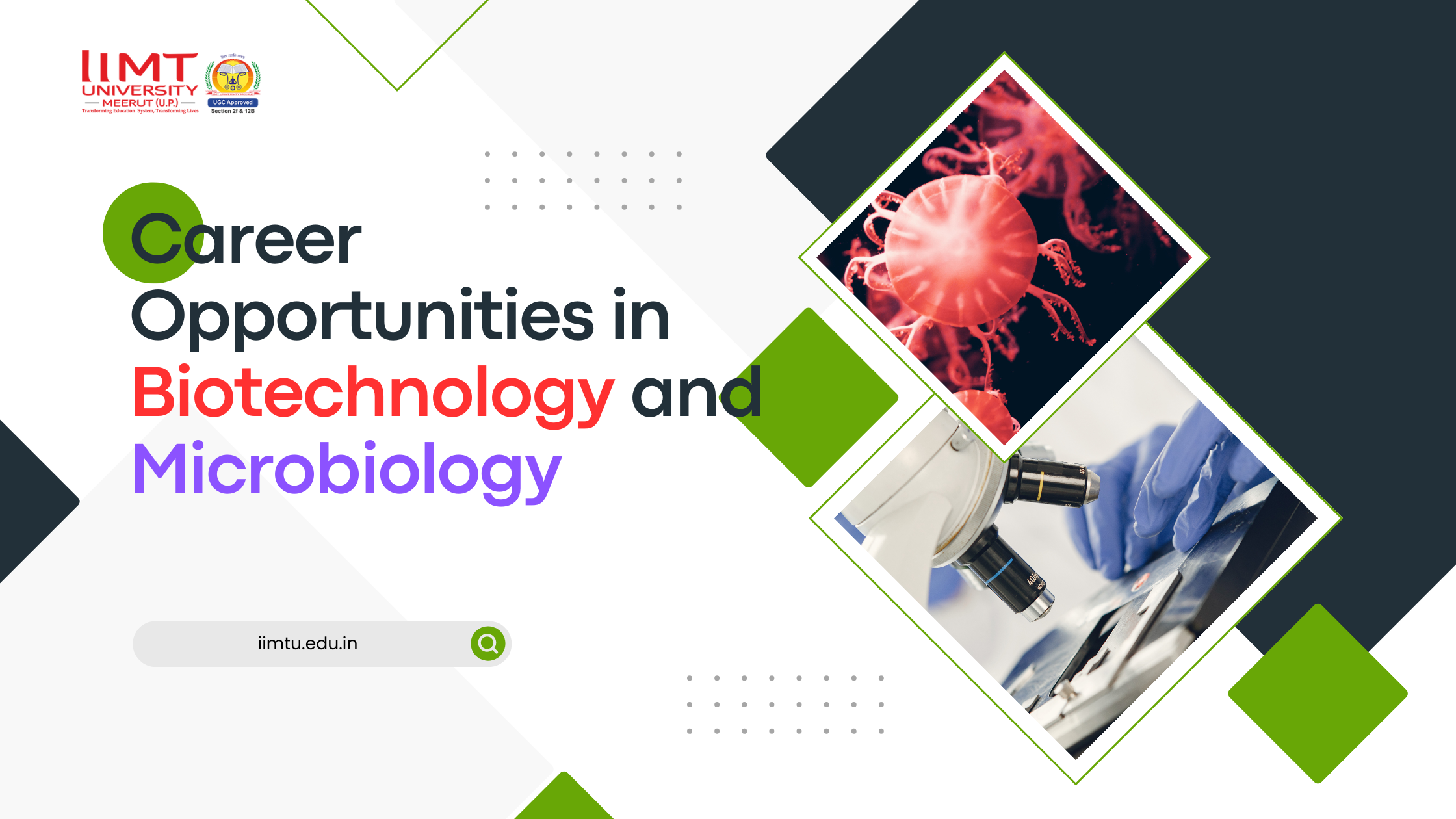Exploring Career Opportunities in Biotechnology and Microbiology: A Guide to Success
Unlocking the Potential: Career Opportunities in Biotechnology and Microbiology
Biotechnology and microbiology are dynamic fields brimming with promising career prospects. From pioneering research to groundbreaking discoveries, professionals in these industries play a pivotal role in shaping the future of science and innovation. In this comprehensive guide, we delve into the myriad opportunities available in biotechnology and microbiology, shedding light on the pathways to success and the skills needed to thrive in these domains.
Introduction
In today’s rapidly evolving landscape of science and technology, the fields of biotechnology and microbiology stand at the forefront of innovation. With advancements in genetic engineering, drug development, and sustainable agriculture, the demand for skilled professionals in these disciplines continues to soar. This article serves as a roadmap for individuals aspiring to embark on a fulfilling career journey in biotechnology and microbiology.
Understanding Biotechnology and Microbiology
What is Biotechnology?
Biotechnology encompasses a broad spectrum of scientific applications aimed at utilizing biological systems and organisms to develop technological solutions. It intersects with various disciplines such as genetics, biochemistry, and molecular biology to address societal challenges and enhance human well-being.
What is Microbiology?
Microbiology is the study of microscopic organisms, including bacteria, viruses, fungi, and protozoa. It plays a crucial role in areas such as healthcare, food safety, and environmental conservation, offering insights into the complex interactions between microorganisms and their surroundings.
Education and Skills Required
Academic Background
A solid educational foundation is essential for pursuing a career in biotechnology and microbiology. Most entry-level positions require a bachelor’s degree in biology, microbiology, biochemistry, or a related field. Advanced roles may necessitate a master’s or doctoral degree, especially for research and leadership positions.
Essential Skills
In addition to academic qualifications, certain skills are indispensable for success in biotechnology and microbiology:
- Proficiency in laboratory techniques and experimental design.
- Strong analytical and problem-solving abilities.
- Effective communication and teamwork skills.
- Adaptability to technological advancements and industry trends.
Biotechnology and Microbiology Industries
Pharmaceutical Industry
The pharmaceutical sector harnesses biotechnological innovations to develop life-saving drugs and therapies. Biotechnologists and microbiologists play key roles in drug discovery, vaccine development, and clinical trials, contributing to advancements in healthcare and disease management.
Agricultural Sector
In agriculture, biotechnology offers sustainable solutions for crop improvement, pest control, and soil fertility. Microbiologists study plant-microbe interactions to enhance agricultural productivity and promote environmental sustainability, thereby addressing global food security challenges.
Environmental Science
Biotechnology plays a vital role in environmental remediation and conservation efforts. Microbial biodegradation techniques are employed to mitigate pollution, clean up contaminated sites, and restore ecosystems, highlighting the interdisciplinary nature of biotechnology in addressing environmental issues.
Career Paths and Specializations
Research and Development
Professionals engaged in research and development (R&D) explore novel scientific avenues, conduct experiments, and analyze data to drive innovation. They collaborate with multidisciplinary teams to develop new products, improve existing processes, and pioneer breakthroughs in biotechnology and microbiology.
Quality Control and Assurance
Quality control specialists ensure that products meet regulatory standards and adhere to quality specifications. They perform rigorous testing and validation procedures to maintain product integrity and safety, safeguarding consumer health and upholding industry standards.
Bioprocessing
Bioprocessing specialists oversee the manufacturing and production processes involved in biotechnological applications. They optimize fermentation, purification, and downstream processing techniques to scale up production and streamline manufacturing operations.
Job Opportunities
The diverse nature of biotechnology and microbiology opens up a plethora of career opportunities across various sectors:
- Biotechnologist: Conducts research, develops products, and implements biotechnological solutions in industries such as healthcare, agriculture, and energy.
- Microbiologist: Studies microorganisms, conducts experiments, and analyzes data to understand microbial behavior and develop practical applications.
- Bioinformatics Specialist: Utilizes computational tools and data analysis techniques to interpret biological data, facilitate research, and solve complex biological problems.
Emerging Trends
As technology continues to advance, several trends are reshaping the landscape of biotechnology and microbiology:
- Gene Editing Technologies: CRISPR-based gene editing techniques are revolutionizing genetic engineering and personalized medicine.
- Synthetic Biology: Synthetic biology approaches are enabling the design and construction of novel biological systems with applications in medicine, agriculture, and industrial biotechnology.
- Microbiome Research: Exploration of the human microbiome is unraveling new insights into health and disease, paving the way for innovative therapies and diagnostics.
Salary and Growth Prospects
The salaries in biotechnology and microbiology vary depending on factors such as education, experience, and job role. According to the U.S. Bureau of Labor Statistics, the median annual wage for microbiologists was $84,400 in May 2020, with favorable job outlook projected for the coming years.
Challenges and Rewards
While pursuing a career in biotechnology and microbiology offers immense opportunities for professional growth and fulfillment, it also comes with its set of challenges. From navigating regulatory complexities to addressing ethical considerations, professionals in these fields must remain adaptable, resilient, and ethically responsible.
Ethical Considerations
As technology continues to advance, ethical considerations surrounding biotechnology and microbiology become increasingly pertinent. Issues such as genetic privacy, biosecurity, and equitable access to biotechnological innovations require thoughtful consideration and ethical stewardship to ensure responsible and sustainable practices.
Future Outlook
The future of biotechnology and microbiology is poised for continued innovation and transformation. With rapid advancements in fields such as gene editing, synthetic biology, and bioinformatics, the potential for addressing pressing global challenges and improving human well-being is limitless.
To know more – Visit our website
For admission related queries – Click here or Call us @9997089170
Author:- Antra Das

